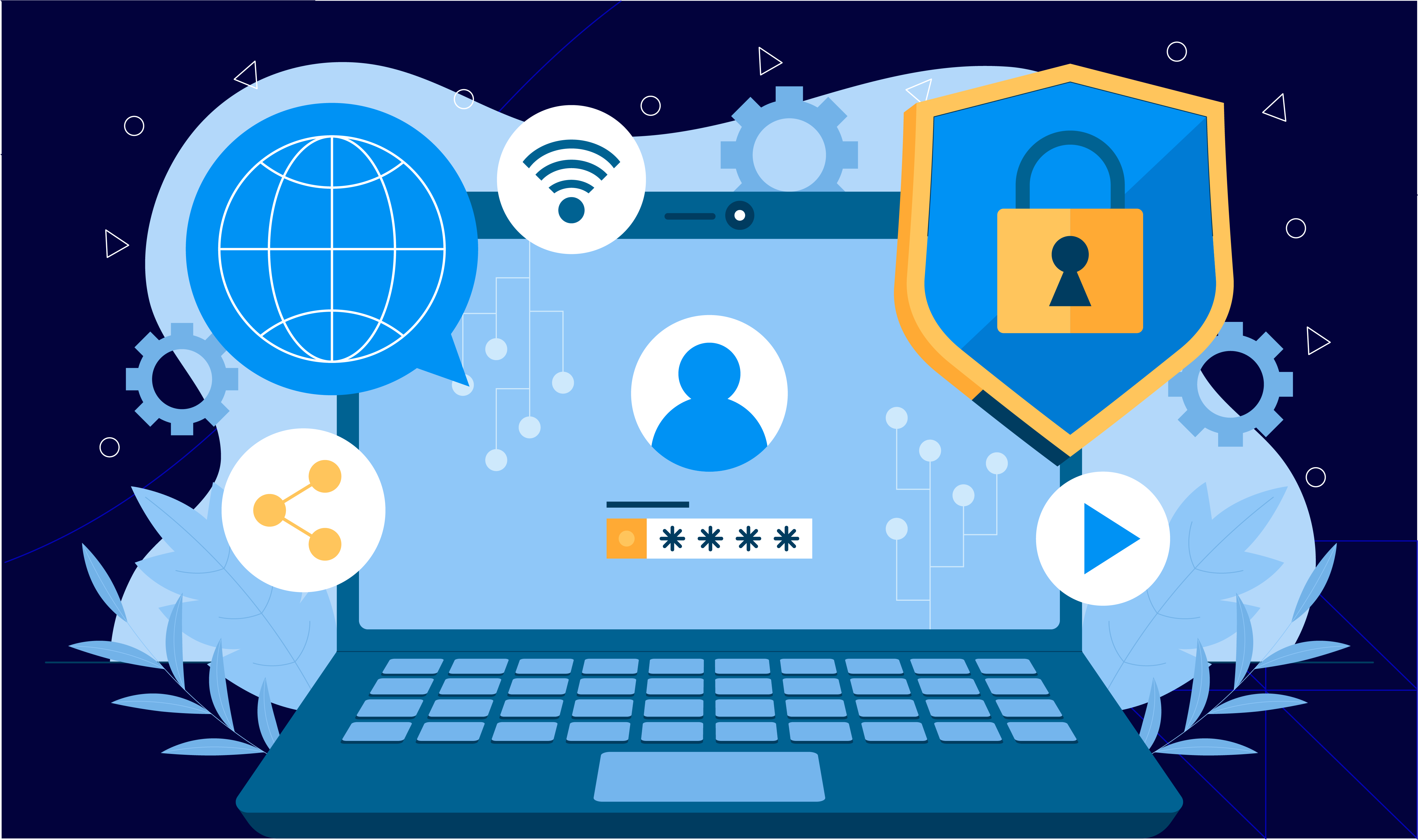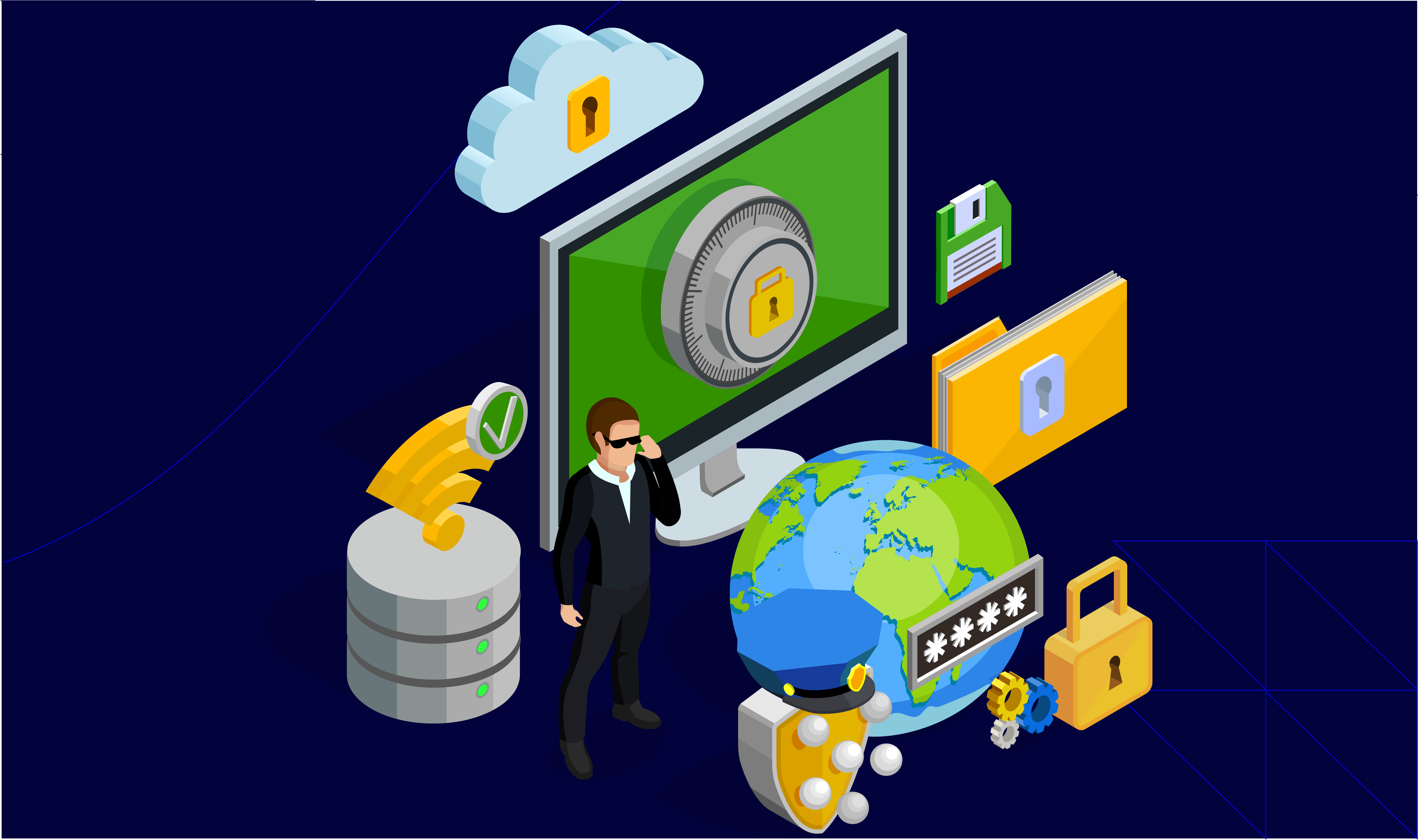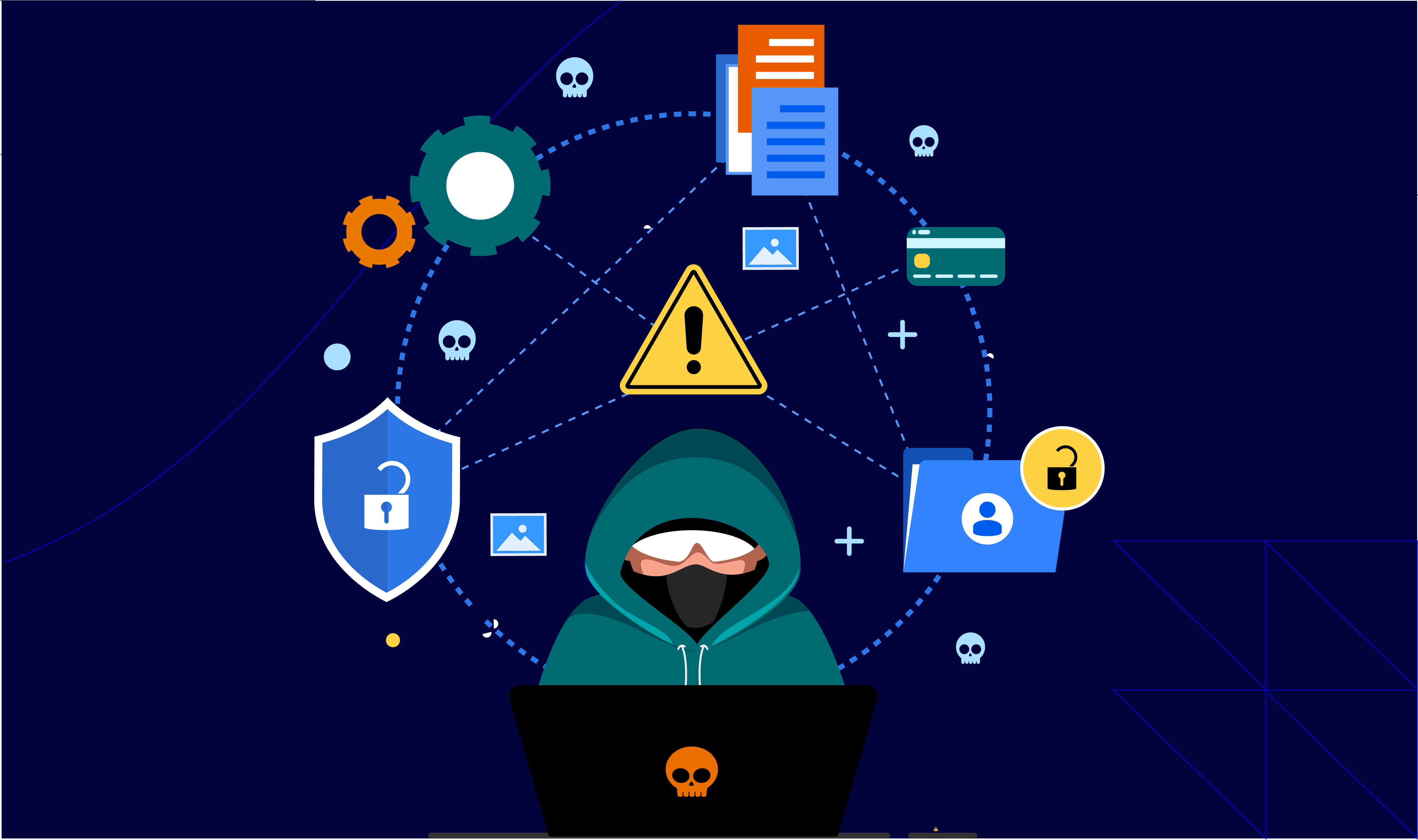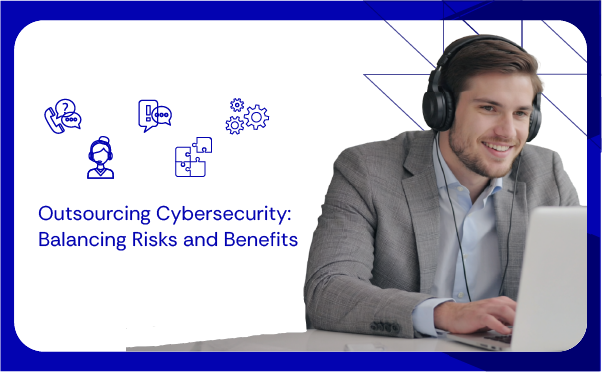Cybersecurity is one of the issues that businesses have to deal with at all times. For consumer brands and D2C companies operating across the US, UK & Australia, protecting customer data is critical. Outsourcing cybersecurity responsibilities to a third-party stakeholder is important because you need dedicated personnel to monitor online interactions on your server. Having such a deployment will not only give you the confidence to carry on with daily business affairs unfettered, but also give your clients reason to trust your policymaking.
Why is cybersecurity such an important matter even for governments? The chief reason for it is that they, too, have sensitive data stored in cloud-based systems, and any such system faces several vulnerability issues.
Therefore, having a robust cybersecurity system at your disposal is important for your business. Read on to understand what cybersecurity is and why it is crucial for your business, along with the major pros and cons of outsourcing cybersecurity.
What is Cybersecurity and Why is it Important for Businesses?

Cybersecurity is a protective system against data breaches deployed by businesses on their websites and apps. It is important because sensitive customer data, like financial details, is stored in these online platforms, and the leakage of the same could result in big financial scams. According to a Gartner research, in an era where 45% of organizations face supply chain problems, in some ways they will be victims of a supply chain attack, with hackers exploiting third-party vulnerabilities, by 2025.
Furthermore, businesses themselves are at risk of intellectual property theft and reputational loss due to clone websites faking their trademarks to generate profit. In worst cases, businesses face legal proceedings for not being able to protect their data, with hackers making unfair use of it.
For CX and Support leaders, outsourced cybersecurity ensures operations remain uninterrupted along with compliance across regions, even as your digital presence scales.
Let us now take a look at the types of cybersecurity and why they are so important for businesses:
- Network Security: It is the basic form of protection, like firewalls and anti-phishing software, which you find in any electronic device. These tools guard you against third-party sources trying to steal your data by preventing unauthorized access to your system. Outsourced cybersecurity providers can monitor traffic which reduces the risk of downtime and data theft. Thus, it is important for businesses to have an outsourced cybersecurity system in place so that business integrity and credibility are never put to question.
- Endpoint Security: Endpoint security is the protection of all electronic devices that are connected to a network, such as a Wi-FI system. By using Endpoint Detection and Response (EDR) tools, providers can identify and mitigate threats early.
- Cloud Security: It refers to the combination of controls and policies that are expressed through a security system guarding sensitive data on cloud storage. The global cloud storage market is expected to grow to 234.9 billion USD by 2028, securing cloud environments through managed cybersecurity outsourcing ensures compliance with frameworks such as GDPR and ISO 27001.
- Application Security: Application security is one of the most important aspects of cybersecurity because the daily workflow of businesses cannot be executed without working on company applications. While working on these applications, business data is accessed extensively, making it vulnerable to breach. Periodic security reviews and audits must be made to gauge the current security levels and whether they need to be ramped up.
- Identity and Access Management (IAM): IAM refers to the various mechanisms deployed by businesses to authenticate user sign-ins to their database. Examples of IAM include multi-factor sign-in mechanisms and access control policies, like regulating the number of individual user devices allowed to use the site. In 2024, 31% of organizations adopted zero-trust frameworks which helped in strengthening access security.
- Data Security: With the help of encryption, data-loss prevention (DLP) systems, data encryption and masking, businesses try their best to protect user data against unauthorised use. Thus, sensitive data like financial records is kept safe through cybersecurity risk management, enabling businesses to establish enterprise-grade encryption affordably.
- Operational Security: Operational security is one of the most important aspects of cybersecurity that businesses cannot do without. Having a robust operational security means making sure that the business can respond to a data breach effectively, without shutting its operations for an indefinite period. With business continuity planning and incident response planning, businesses make sure that their clients do not suffer a lag in the timeline because of a data breach on their end.
- Mobile Security: Businesses utilise Mobile Device Management (MDM) solutions to enhance security on the mobile devices that they use for operational purposes. Since these devices are used by employees for various work processes, the chances of a data breach cannot be overlooked. Sure enough, the MDM industry is all set to reach a worth of $22 billion by 2027, with a robust CAGR of 26.1%.
What are the Benefits Businesses Have from Deploying Cybersecurity?

Thus, it can be well understood that a multidimensional security system must be reinforced by businesses to protect users against data breaches and maintain company integrity. Let us now focus our attention on the other benefits of cybersecurity outsourcing.
Protection against Loss of Reputation
With e-commerce becoming a principal channel for businesses to enhance their sales, they cannot avoid outsourcing cybersecurity. Risks with the unfair use of logos and other trademarks by scammers can be significantly alleviated with the use of AI in cybersecurity. With superior image recognition and data processing skills, AI-driven cybersecurity tools can detect brand misuse, counterfeits and logo theft. Thus, to protect your business reputation, it is important to take recourse to robust cybersecurity measures. For example, Atidiv’s image recognition and fraud detection capabilities (see how we protect eCommerce brands) help identify unauthorized use of assets online, maintaining your brand’s authenticity and reputation.
Conforming to Regulations
One of the major benefits of outsourcing cybersecurity is that it automatically takes care of the legal recommendations regarding data security that businesses must follow. Ensuring such compliance effectively means that the concerned business conforms to codes of conduct set by official regulatory bodies. Outsourced cybersecurity partners ensure compliance with GDPR, PCI DSS and local privacy regulations. Thus, remaining within the boundaries of set ethical regulations, businesses do away with the risks of getting into legal trouble and hampering their business. Moreover, clients prioritise businesses that are transparent with their terms and policies concerning data protection and responsive to issues about them on their customer messaging platform. Therefore, cybersecurity outsourcing is linked to client retention and revenue generation.
Protecting Intellectual Property
Intellectual property is one of the key strengths of any business worth its salt – it generates revenue from an idea that is relevant in the market context at the moment. Intellectual property theft can cost companies millions. Therefore, you would not want unauthorised people to capitalise on your patented products/services. Apart from opting for the service of a competent cybersecurity agency, you must also have social media support for your customers so that you get to know as soon as something is amiss with your products. In this context, Atidiv’s CX solutions like live chat outsourcing services can come in handy to establish meaningful connections with your customers so that you can react in earnest the moment you are apprised of a data breach-related issue.
Ensuring Business Continuity
Even in case of a breach, incident response protocols prevent data loss and downtime. Although some intricate functionalities might have to be suspended, they will ensure that the basic functionalities are not affected. Thus, you will be able to buy more time before clients push the panic button. Moreover, you will not face any loss in revenue, and the working day will go on as normal, as the cybersecurity personnel safeguard your data once more.
Identifying and Mitigating Risks
Regular upgradation of security checkpoints and AI-enabled inconsistency detection that seems suspicious can tip you off well in advance about an imminent data breach. Cybersecurity agencies that you outsource must make sure that the chances of an attack on data security are mitigated as far as possible. Reacting to a data breach is a slippery slope, and mitigation of a risk is always preferable. Outsourced cybersecurity teams act as an extension of your internal IT department, offering predictive alerts before issues escalate.
What are the Risks Associated with Cybersecurity?

Cybersecurity faces several threats from current market conditions and political interventions. These are some of the factors that make cybersecurity a complex issue to circumvent:
- Regular upgradation of cybercrime sophistication makes it tough to keep up using existing safety mechanisms
- Supply chain interdependence is hard to do away with, even for 54% of big businesses, thus creating vulnerabilities
- Geopolitical tensions do not help the cybersecurity cause, as nations try to bypass each other’s cybersecurity to gather intelligence, affecting at least 60% of businesses
- Modern innovations like AI are growing at a fast pace, positioning human oversight with AI-driven cybersecurity tools is becoming essential.
- The gap in inter-departmental cyber skills often prevents businesses from observing the best practices for cybersecurity
- The legal regulations vary according to location, for which 76% of CISOs mention global compliance inconsistency, it is difficult to standardise the legal compliance standards for cybersecurity
Outsourcing cybersecurity allows your team to focus on core goals like growth, innovation and customer experience, while specialists handle data protection.
Atidiv, with over 15 years of experience and 70+ global clients, provides secure, AI-backed CX and cybersecurity outsourcing. Our frameworks integrate encryption, monitoring and compliance for industries like hospitality, retail and eCommerce.
We recently helped a U.S.-based client manage 230,000+ customer interactions annually while ensuring 100% data protection compliance and saving $1.3M (see full case study).
Partner with Atidiv to safeguard your data, scale efficiently, and maintain customer trust—without expanding your internal teams.
FAQs On Outsourcing Cybersecurity
1. Can I use I AM for my employees as they log into my systems?
Yes, Identity and Access Management tools validate user identities and mark suspicious activity immediately, preventing internal misuse or unauthorized access.
2. How difficult is it to conform to local law enforcement pertaining to cybersecurity?
It is fairly tough to deal with the legal framework in different locations. However, having a strong offshore legal team can ensure compliance so that you stay on the right side of the law at all times. Partnering with an outsourcing provider experienced in GDPR and ISO 27001 compliance provides consistent protection.
3. How important is MDM as far as the daily workflow at your office is concerned?
Mobile Device Management is an important tool for cybersecurity because you want to track your employees’ activity on your system devices. MDM solutions track device activity and prevent data leaks from mobiles.It is not about not having trust in your employee, but about dealing with the gap in cyber skills in various departments. Even opening a malicious email can trigger a data breach and MDM can help you detect its source point.

